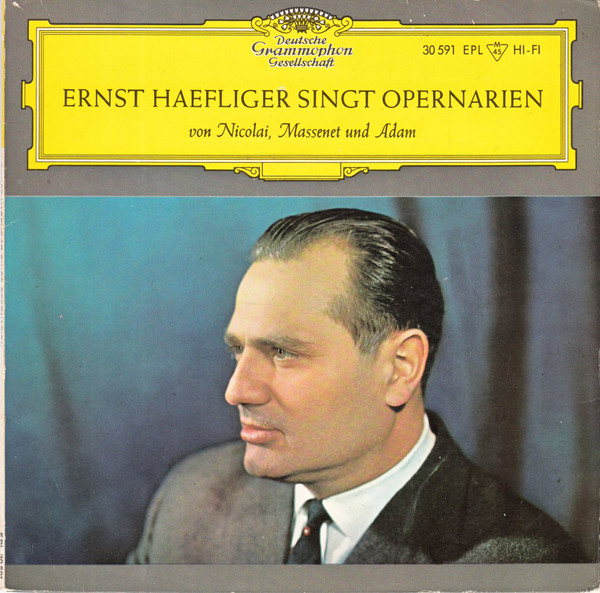

|
Ernst Haefliger
Born: July 6, 1919 - Davos, Switzerland
The noted Swiss tenor, Ernst Haefliger, is recognized
as one of the great vocal artists of the 20th century. His
worldwide reputation rests on his supreme interpretation of German Lieder,
opera and oratorio which he has performed regularly throughout Europe,
Japan and the USA. World-renowned for his interpretations of Bach, his
performances of the Evangelist in the St. Matthew Passion (BWV 244)
have set a worldwide standard. He is equally acclaimed and admired as
one of the world's great lieder singers, and his recitals and master-classes
have become legendary. -- From the Bach Cantatas Website (with corrections)
|
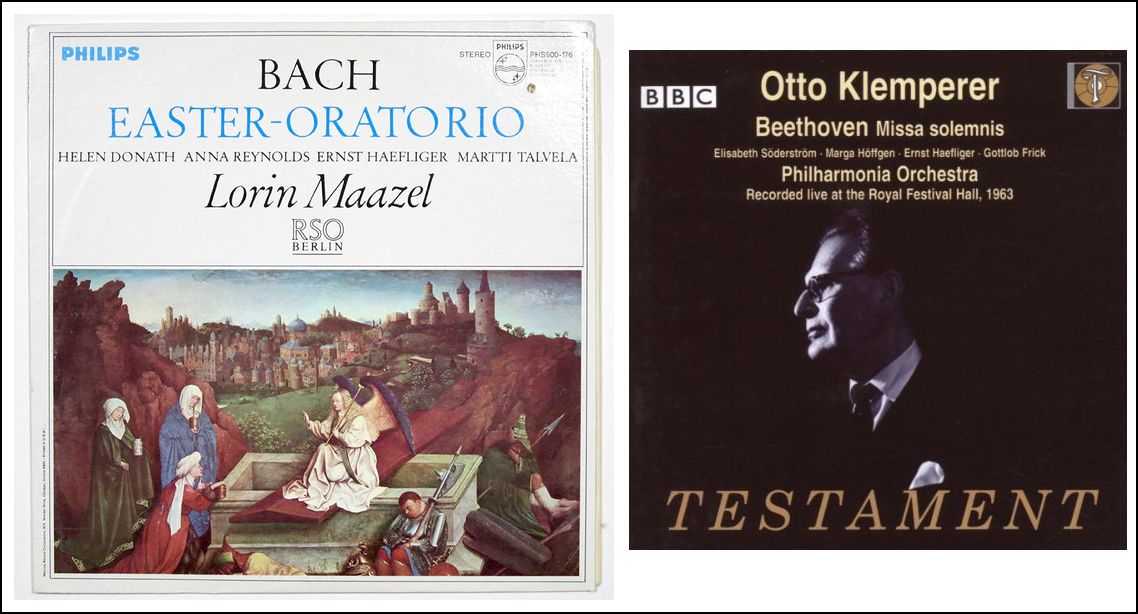
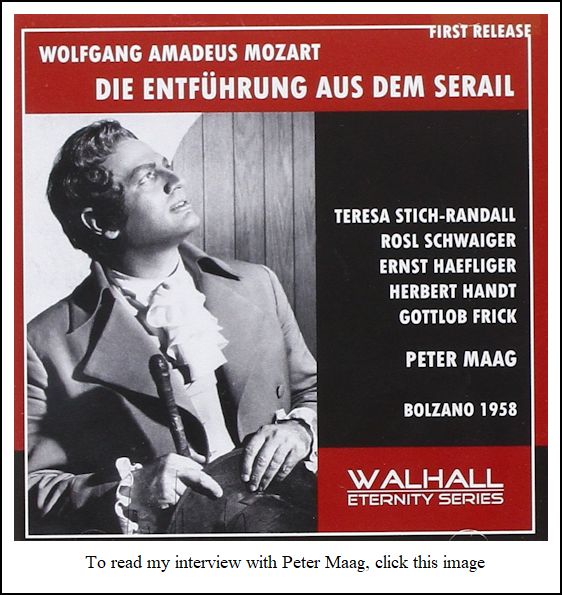 Bruce Duffie: Tell me the secret of singing Mozart.
Bruce Duffie: Tell me the secret of singing Mozart.|
Ebert's early career was as an actor, training under Max Reinhardt and becoming one of the leading actors in his native Germany during the 1920s. During that decade he was also appointed to administrative posts, both theatrical and academic. In 1929 he directed opera for the first time, and during the 1930s established a reputation as an operatic director in Germany and beyond. A strong opponent of Nazism, he left Germany in 1933 and did not return until 1945. Together with John Christie and the conductor Fritz Busch, Ebert created the Glyndebourne Festival Opera in 1934. Ebert remained its artistic director until 1959, though productions were suspended during the Second World War. In the 1930s and 1940s Ebert helped establish a national conservatory in Turkey, where he and his family lived from 1940 to 1947. At the end of the Second World War the Allied powers occupying Germany invited Ebert to undertake a thorough tour of all parts of the country and report on the state of the theatre. He did so, but declined the offer that followed of a permanent theatre post in Germany. When Glyndebourne reopened after the war Ebert and Busch returned, and their productions continued to set high standards. Ebert remained as artistic director until retiring in 1959. In 1948 Ebert created the opera department of the University of Southern California, Los Angeles of which he was professor and head until 1954. From this grew a professional company, the Guild Opera Company of Los Angeles, of which he was general director from 1950 to 1954. During this period he took American citizenship. In 1954 he finally returned to a permanent post in Germany, resuming his former position in charge of the Städtische Oper, Berlin. In 1961 he supervised the rebuilding and directed the opening production of the company's new opera house in Berlin, the Deutsche Oper, after which he retired. Ebert continued to accept invitations to work as a guest director with Glyndebourne (until 1963), Zürich and the Wexford Festival (until 1965), and Berlin (until 1967). In 1965 and 1967 he gave masterclasses, televised by the BBC. Ebert retired to California, where he died in Santa Monica at the age of 93. |
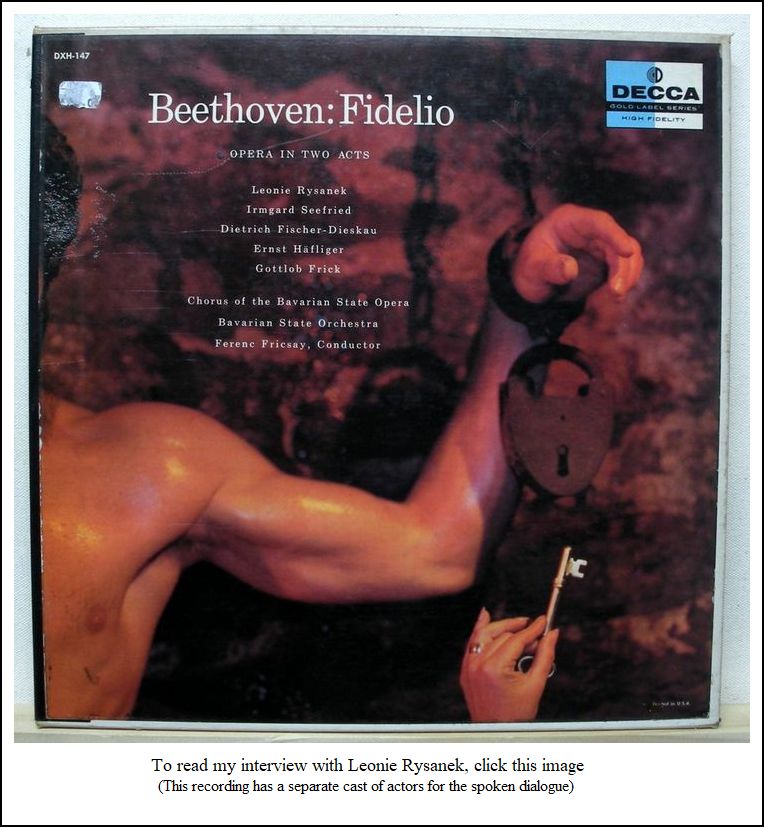 BD: Can productions of Mozart get
too fussy?
BD: Can productions of Mozart get
too fussy?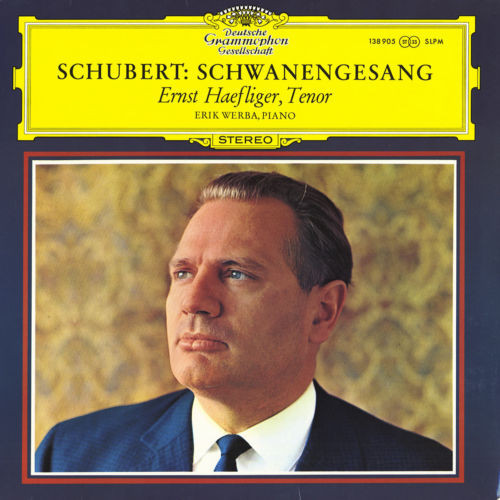 BD: Are there some roles that you
have wanted to sing but have just not gotten around to?
BD: Are there some roles that you
have wanted to sing but have just not gotten around to?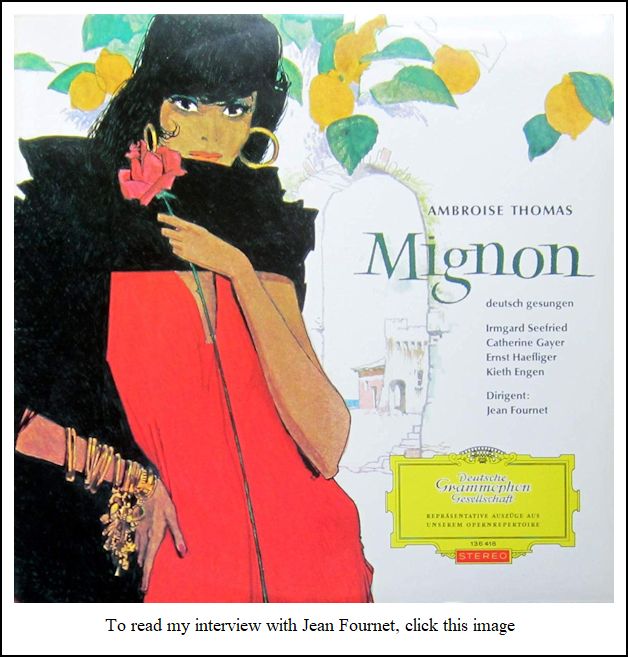 EH: That pleases me very much. I
told him at an early stage that you have to sing at the piano. He
has his technique now, and he can make the piano sing. He’s very
gifted rhythmically, and has his own ideas. He’s a very nice guy,
and very good.
EH: That pleases me very much. I
told him at an early stage that you have to sing at the piano. He
has his technique now, and he can make the piano sing. He’s very
gifted rhythmically, and has his own ideas. He’s a very nice guy,
and very good.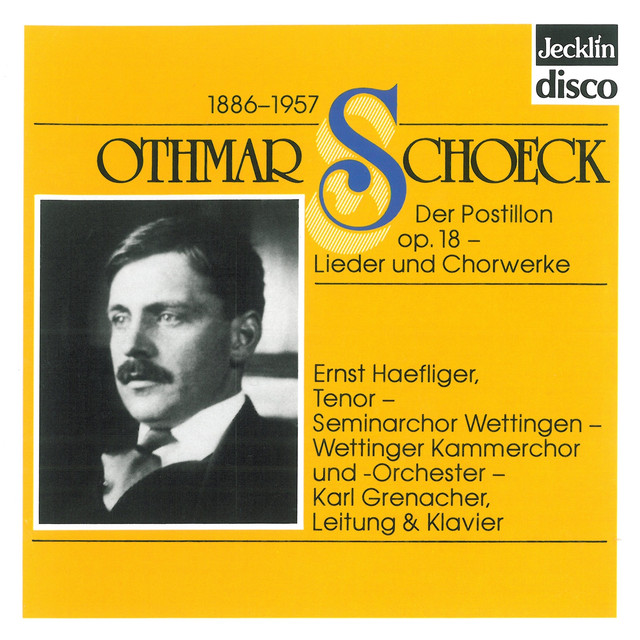 BD: Martin is Swiss and you are Swiss.
Is there a special compatibility among Swiss performers?
BD: Martin is Swiss and you are Swiss.
Is there a special compatibility among Swiss performers?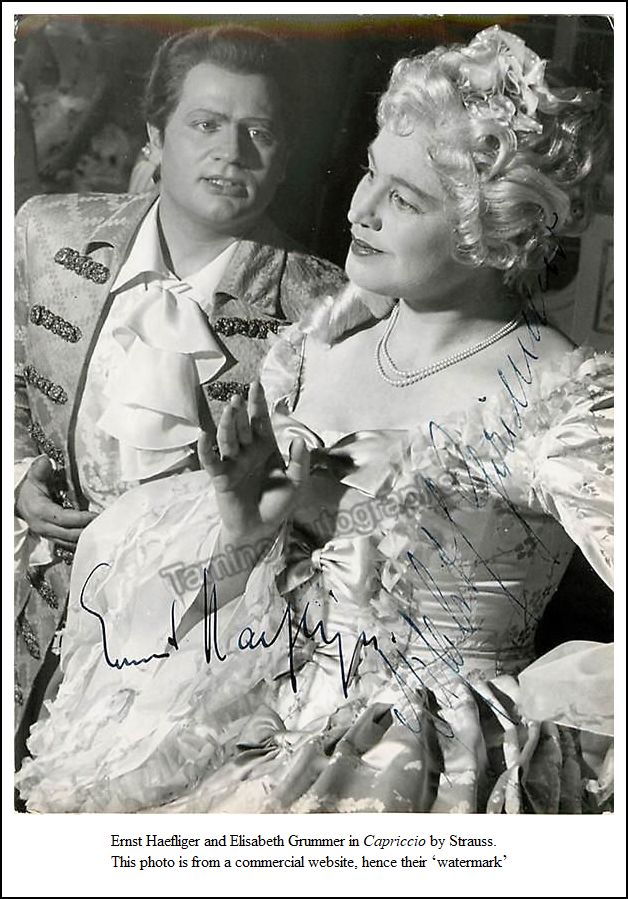 EH: It’s very, very good. The Japanese made a
CD of it.
EH: It’s very, very good. The Japanese made a
CD of it.© 1992 Bruce Duffie
This conversation was recorded at the Ravinia Festival in Highland Park, Illinois, on August 3, 1992. Portions were broadcast on WNIB the following year, and again in 1994 and 1999. This transcription was made in 2019, and posted on this website at that time. My thanks to British soprano Una Barry for her help in preparing this website presentation.
To see a full list (with links) of interviews which have been transcribed and posted on this website, click here.
Award - winning broadcaster Bruce Duffie was with WNIB, Classical 97 in Chicago from 1975 until its final moment as a classical station in February of 2001. His interviews have also appeared in various magazines and journals since 1980, and he now continues his broadcast series on WNUR-FM.
You are invited to visit his website for more information about his work, including selected transcripts of other interviews, plus a full list of his guests. He would also like to call your attention to the photos and information about his grandfather, who was a pioneer in the automotive field more than a century ago. You may also send him E-Mail with comments, questions and suggestions.